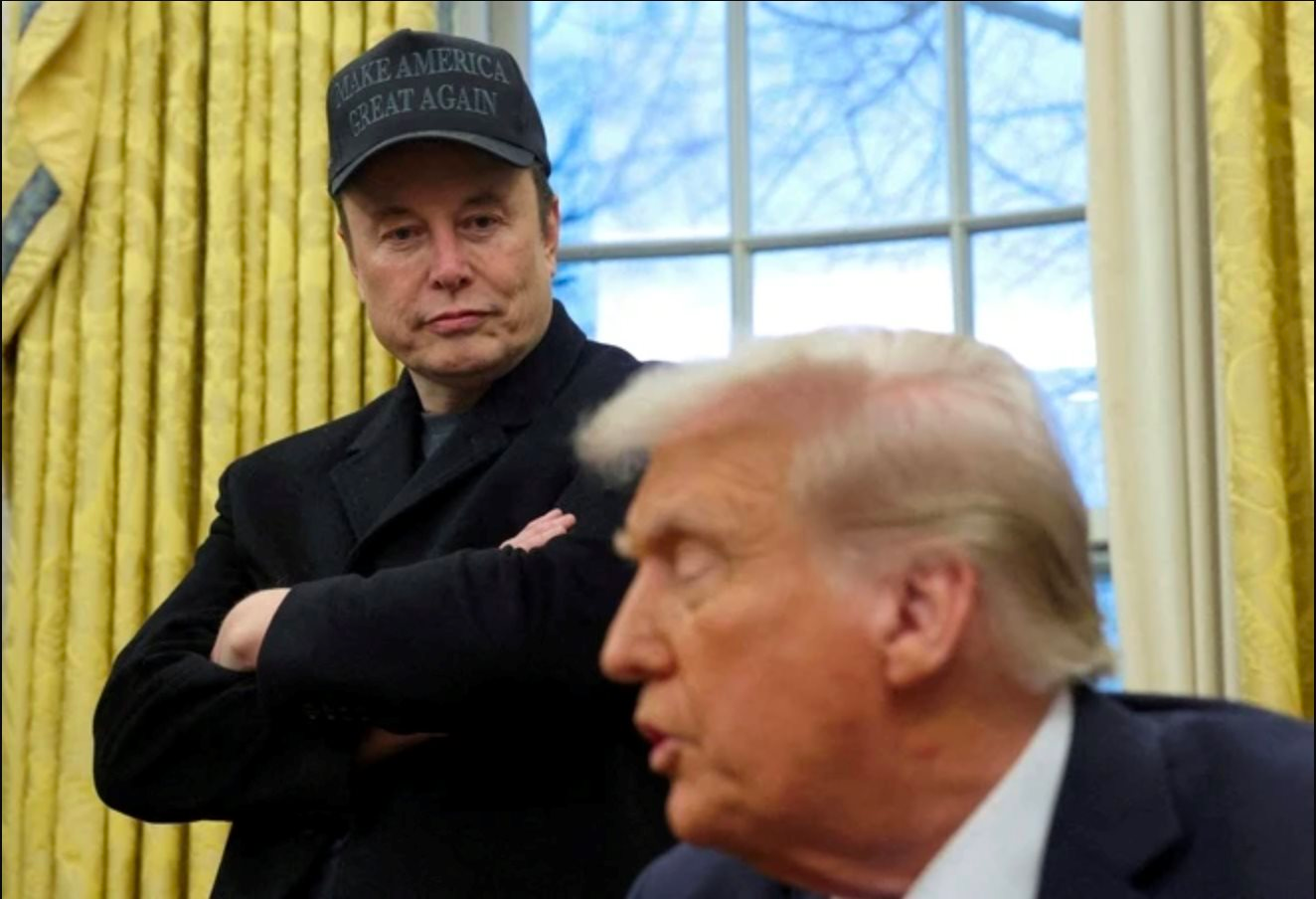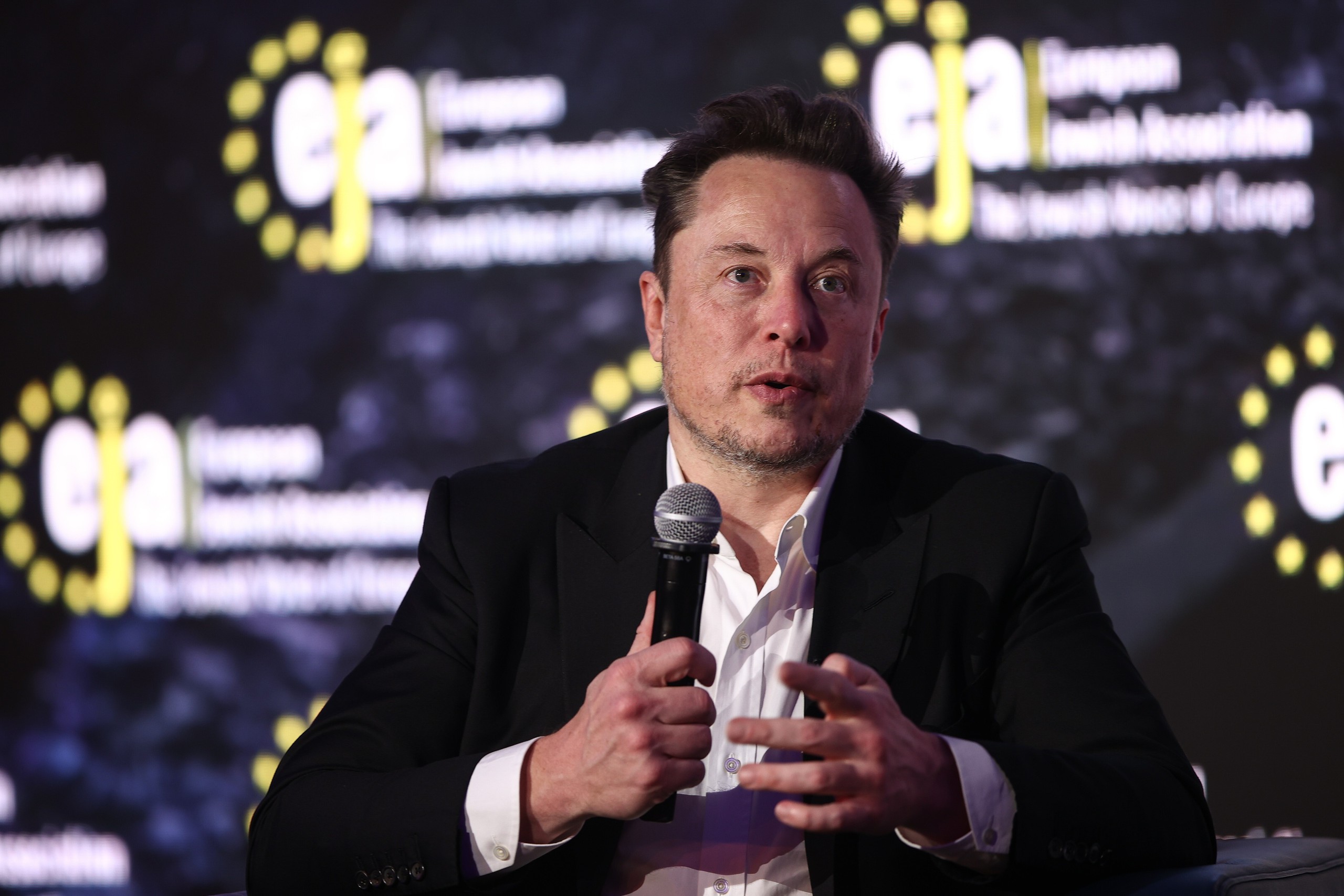
In what can only be described as a surreal blend of satire, sabotage, and Silicon Valley irony, two of the world’s most powerful tech moguls—Elon Musk and Mark Zuckerberg—have become the laughingstock of the internet after being unexpectedly dragged into a bizarre public prank involving hacked crosswalks in California.
For once, the mighty voices of innovation were literally used against them—twisted by AI and broadcast to unsuspecting pedestrians at traffic lights, transforming once-routine intersections into theaters of absurdity.
It all began when residents in Palo Alto, Menlo Park, and Redwood City started noticing something... off. Instead of the usual automated pedestrian prompt—“Walk sign is on”—a new voice echoed from the speakers.
It wasn’t robotic. It wasn’t official. It was unmistakably human. And it sounded eerily like Elon Musk.

One such message reportedly began with an enthusiastic, “Hi, I’m Elon. Can we be friends? Will you be my friend? I’ll give you a Cybertruck, I promise.” The voice, uncannily close to Musk’s real tone and cadence, didn’t stop there.
It spiraled into what could only be described as a comedic breakdown: “Okay, look, you don’t know the level of depravity I would stoop to just for a crumb of approval.”
In another instance, the voice rambled about money and loneliness: “You know, they say money can’t buy happiness… but it can buy a Cybertruck, and that’s pretty sick, right? Right?”
At first, many assumed this was some sort of viral marketing stunt. After all, Musk is known for unconventional publicity tactics. But it soon became clear this wasn’t a Tesla campaign—it was a hack. Not only was “Elon Musk” speaking through the crosswalk system, but “Mark Zuckerberg” joined the chorus.
Zuckerberg’s AI voice was even darker. In one clip, it addressed pedestrians with chilling satire: “Hey, it’s Zuck here. I just wanted to tell you how very proud I am of everything we’ve been building together. From undermining democracy to cooking our grandparents’ brains with AI slop... nobody does it better than us.”
Another recording featured a deadpan monologue from the “Zuck” AI: “You don’t need to worry, because there’s absolutely nothing you can do to stop it.”
The fact that these messages were broadcast from traffic control devices meant for helping the visually impaired added an extra layer of scandal. According to Palo Alto officials, the compromised messages were discovered in at least 13 different crosswalks across the three cities. Meghan Horrigan-Taylor, spokesperson for the City of Palo Alto, confirmed that the feature was disabled immediately, but not before clips had spread all over social media.
The response online was instant and explosive. TikTok videos featuring the hacked voices quickly racked up millions of views. Twitter (now known as X) users shared memes and reaction GIFs in a frenzy. The hashtags #MuskWalk and #ZuckCrossing began trending within hours.
For a tech-savvy public increasingly wary of AI’s unchecked capabilities, this stunt felt like the perfect blend of comedy and commentary.

But beneath the humor, there were darker undertones. These weren’t just harmless jokes. The messages often veered into politically charged territory.
In one surreal clip, the AI voice of Musk is followed by a voice sounding like Donald Trump, whispering: “Sweetie, come back to bed.” The bizarre implication—Musk’s alliance with Trump becoming intimate in a literal and metaphorical sense—only added fuel to the fire.
The timing of the prank couldn’t be more provocative. Both Musk and Zuckerberg have faced renewed backlash over their cozying up to political power, particularly to Donald Trump.
Both tech leaders were seated at Trump’s inauguration ahead of cabinet members, and their respective platforms—Meta and X—have been accused of quietly aligning with far-right interests in recent months. Meta recently gutted its third-party fact-checking program, while X now leans into community-driven content moderation, which critics argue favors misinformation.

Meanwhile, Tesla is facing growing resistance in the form of protests and vandalism. So-called “Tesla Takedown” demonstrations have popped up across the U.S. and Europe, targeting Cybertruck showrooms and accusing the company of corporate overreach, environmental harm, and labor violations.
One protest in Redwood City earlier this year involved a Cybertruck being graffitied with the phrase: “Eat the Rich.” Now, that same city has its crosswalks transformed into a stage for Musk-themed comedy sketches.
For Zuckerberg, the embarrassment runs just as deep. Meta’s headquarters is in Menlo Park, one of the affected cities. And the voice messages targeting him weren’t just juvenile—they were pointed critiques masked as satire.
One of the AI clips concluded with the words: “Zuck out,” a mock-macho sign-off that left many wondering how the real Zuckerberg might respond to being digitally ridiculed by a synthetic version of himself.
City officials, meanwhile, are left playing catch-up. As of now, no suspects have been identified. The method of hacking into the crosswalk systems has not been publicly disclosed.

Investigations are ongoing, but authorities are being tight-lipped. "Signal operations are otherwise unaffected," Horrigan-Taylor assured, but her statement did little to calm the chaotic buzz online.
Cybersecurity experts are already weighing in, warning that the incident, while humorous on the surface, reveals deep vulnerabilities in public infrastructure. The idea that hackers could insert AI-generated voice clones of two of the world’s most influential billionaires into public utilities—and have them spout absurdities unchecked for days—shows how underprepared cities are for the emerging wave of voice-driven manipulation.
For now, though, the public seems more entertained than alarmed. People in California are joking about bringing lawn chairs to crosswalks, hoping to catch the next episode of “Musk Theater.” Online artists are remixing the audio into lo-fi music tracks and comedy sketches.
Some are even calling for the messages to be preserved as part of a modern art installation, calling the stunt a “masterclass in digital performance.”

Neither Musk nor Zuckerberg has publicly commented on the prank, though many speculate that both are fuming behind the scenes. For men so deeply invested in controlling their narratives, being reduced to punchlines on street corners is likely their worst PR nightmare.
Still, perhaps the greatest irony of all is that this entire ordeal unfolded in the very cities that birthed the modern tech revolution. Palo Alto, Menlo Park, and Redwood City—the holy trinity of Silicon Valley—now stand as ground zero for a prank that used AI not to build the future, but to mock the very people who tried to define it.
As this strange chapter of 2025 continues to unfold, one thing is certain: no matter how high you climb in tech, even the richest men in the world are just one hacked crosswalk away from becoming a joke.
-1747623652-q80.webp)
-1742653910-q80.webp)
-1747904625-q80.webp)
-1747889572-q80.webp)